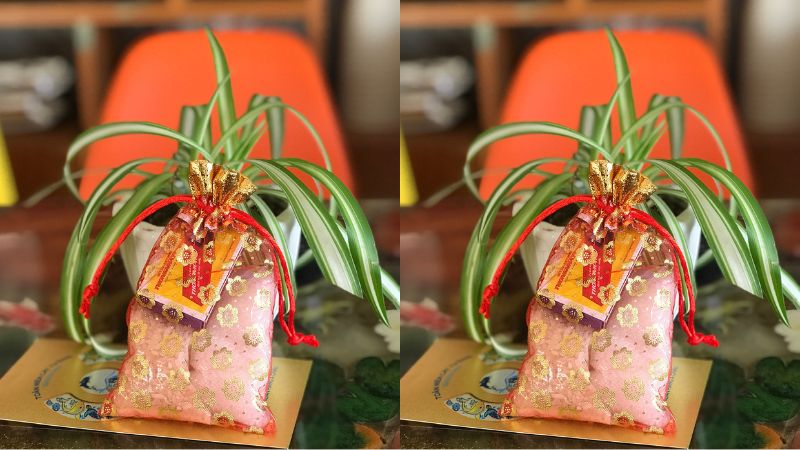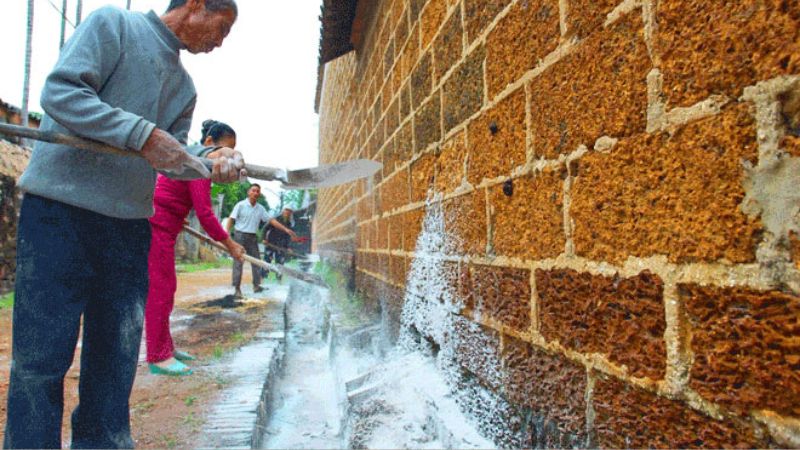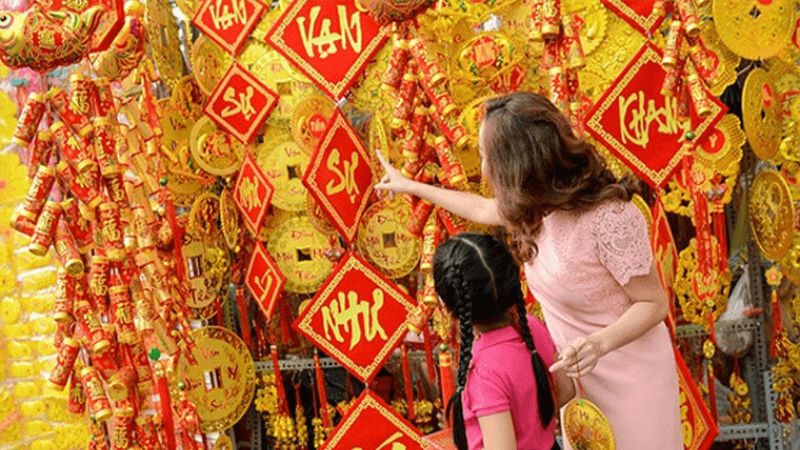The concept of “buying salt at the beginning of the year and lime at the end” is an intriguing Vietnamese tradition with special significance. Let’s explore the true meaning behind this custom through the following article.
1 The Significance of Buying Salt at the Beginning of the Year
The tradition of buying salt at the start of the Vietnamese New Year has been passed down through generations. On the first day of the New Year, people purchase salt, known as “lucky salt,” to welcome good fortune and wish for a prosperous and fulfilling year ahead.
According to ancient beliefs, salt has the power to ward off evil spirits, combat filth, drive away malevolent forces, and bring good luck to the household. Additionally, salt holds symbolic value in relationships, representing the depth of emotion and fostering unity among family members, as well as harmony between spouses and their children.
In North Vietnam, you’ll commonly find salt vendors along village roads and alleyways, bustling with buyers and sellers. This scene has become an integral part of the first day of Tet, the Vietnamese Lunar New Year celebration.
 The Significance of Buying Salt at the Beginning of the Year
The Significance of Buying Salt at the Beginning of the Year
2 The Significance of Buying Lime at the End of the Year
“Buying lime at the end of the year” is a tradition associated with house construction and decoration, aiming to welcome the new year with a clean and bright home, full of hope. Lime is used to plaster houses, symbolizing the erasure of the past year’s traces, rectifying mistakes, and overcoming setbacks.
Additionally, buying lime at the end of the year serves the purpose of refilling the “lime pot,” a traditional container used for betel chewing by elders. However, it is customary to only add lime to the pot towards the end of the year, as doing so at the beginning is believed to bring about financial loss, as the saying “as worthless as lime” suggests.
Furthermore, according to Mr. Vuong Duy Bao, Deputy Director of the Department of Cultural Foundations (Ministry of Culture, Sports, and Tourism), the custom of buying salt at the beginning of the year serves as a reminder from parents to their children to be frugal and save money for the purchase of lime at the end of the year to build or renovate their homes.
 The Significance of Buying Lime at the End of the Year
The Significance of Buying Lime at the End of the Year
3 Where to Keep the Salt Bought at the Beginning of the Year?
- To ward off evil spirits for the entire year: Fill a glass bowl or cup with salt to the 3/4 mark. Place six coins in a circular pattern in the salt, with the yang side facing up, to create a lucky salt bowl.
- On the first morning of the New Year: Place a small bag of salt in your wallet or purse to attract good fortune, foster meaningful relationships, and ensure financial abundance throughout the year.
- For those engaged in business or trade: In addition to keeping salt in your wallet, place another bag of salt at your counter or cash register to invite luck and prosperity.
- For travelers embarking on long journeys: Keep a bag of salt in your suitcase or hang it in your car for a safe and fortunate trip.
 Buying Salt at the Beginning of the Year
Buying Salt at the Beginning of the Year
4 What to Do and Avoid at the Beginning of the Year?
Recommended activities for the start of the year:
- Purchase salt to attract wealth and good fortune.
- Wear new clothes.
- Visit a temple or pagoda.
- Engage in the traditional first writing of the year.
Things to avoid at the start of the year:
- Avoid sweeping or taking out the garbage on the first day.
- Do not lend or borrow fire and water from others.
- Avoid breaking any household items.
- Refrain from lending or borrowing money.
- Do not argue or fight on the first day.
For further exploration: 13 Taboos During the First Three Days of Tet Holiday
 What to Do and Avoid at the Beginning of the Year?
What to Do and Avoid at the Beginning of the Year?
Exploring the Customs and Traditions of the Vietnamese Doan Ngo Festival Celebrated in Families
The Lunar new year marks an important holiday in Vietnamese culture, and has roots stretching back to the ancient Eastern world. As families come together to experience the celebrations of Tet Doan Ng?, let’s explore seven of the most significant traditions that they engage in, each of which promises to bring prosperity and contentment.







































